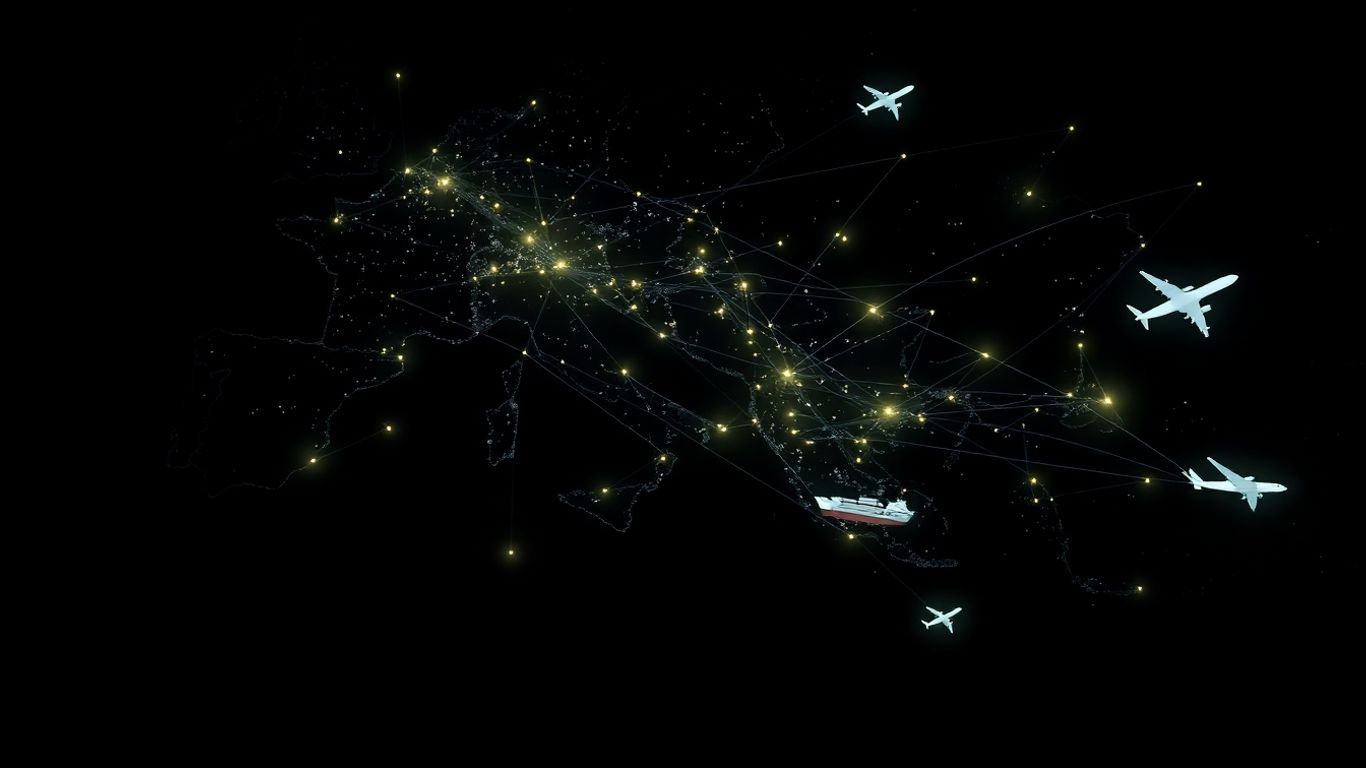Law enforcement agencies worldwide are intensifying efforts to dismantle sophisticated organized crime networks originating from the Western Balkans. These groups have evolved into major players in the global cocaine supply chain, extending their operations from South America to West Africa and Europe, posing a significant transnational threat.
Key Takeaways
- Western Balkan organized crime groups have established a significant presence in West Africa, using it as a logistical hub for cocaine destined for Europe.
- These networks leverage established relationships with Latin American cartels and exploit local vulnerabilities, including corruption, to facilitate their operations.
- An international law enforcement group has been formed to specifically target these dangerous traffickers, enhancing collaboration and intelligence sharing.
- Money laundering remains a critical enabler for these criminal enterprises, with proceeds from drug trafficking and other illicit activities being integrated into the formal economy.
Expanding Global Footprint
Organized crime networks from the Western Balkans have transformed from regional players into formidable forces in the international cocaine trade over the past two decades. They have forged strategic alliances with coca producers and criminal organizations across South America, particularly in Colombia, Peru, Bolivia, Brazil, Ecuador, and the Caribbean. These groups are adept at utilizing various trafficking methods, including maritime shipping and air transport, often employing concealed smuggling techniques.
West Africa as a New Hub
In recent years, these networks have expanded their operations into West Africa, a region now serving as a crucial logistical, storage, and redistribution point for multi-tonne cocaine shipments en route to European markets. This expansion is driven by rising demand for cocaine in Europe, increased enforcement along direct trafficking routes, and strengthened partnerships with Latin American cartels like Brazil’s Primeiro Comando da Capital (PCC). Groups such as the Montenegrin Kavač and Škaljari clans, along with Albanian-speaking networks, are actively involved, sometimes collaborating with Italian ‘Ndrangheta or the PCC.
International Law Enforcement Response
Recognizing the escalating threat, an international law enforcement group, including the UK’s National Crime Agency and Western Balkan partners, has been established to target these dangerous drug traffickers. This collaborative effort aims to enhance cooperation, share intelligence, and identify high-value targets involved in the source-to-street supply of cocaine. The group acknowledges the significant threat these organizations pose not only to Europe but also to South American nations affected by the violence associated with cocaine production and trafficking.
The Role of Money Laundering
Money laundering is a critical component enabling the continued operations of these criminal networks. Systemic corruption, weak regulatory oversight, and a substantial informal economy in the Western Balkans create a fertile ground for legitimizing illicit profits. Proceeds from drug trafficking, firearms smuggling, human trafficking, and cybercrime are laundered through various sectors, including construction and real estate, often facilitated by professional enablers like notaries, accountants, and attorneys. Addressing this requires intensified prosecution of money laundering as a standalone crime and robust asset recovery measures.
Key Takeaways
- Under the radar: Western Balkans’ cocaine operations in West Africa, Global Initiative against Transnational Organized Crime (GI-TOC).
- Cocaine connections: Links between the Western Balkans and South America, Global Initiative against Transnational Organized Crime (GI-TOC).
- International law enforcement group set up to go after world’s most dangerous drugs traffickers | National
Crime Agency, Wired-Gov. - Danger ahead? Scenarios for the future of organized crime in the Western Balkans, Global Initiative against Transnational Organized Crime (GI-TOC).
- Money laundering in the Western Balkans, Global Initiative against Transnational Organized Crime (GI-TOC).






